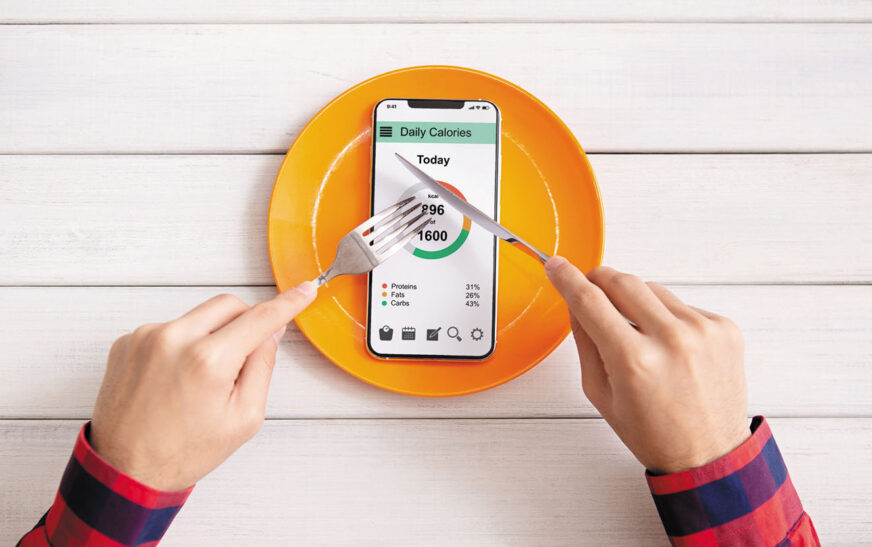Calorie counting has emerged as a popular tool for individuals striving to manage their weight, enhance their overall health, or attain specific fitness objectives. By comprehending the fundamental principles of calorie counting and implementing effective strategies, you can make well-informed decisions regarding your diet and lifestyle. Calorie counting empowers individuals to gain control over their food intake, leading to healthier eating habits and improved well-being.
Understanding Calories
Calories are a unit of energy that our bodies require to carry out essential functions. They are derived from the macronutrient’s carbohydrates, proteins, and fats found in the foods we consume. The body breaks down these macronutrients into glucose, amino acids, and fatty acids, respectively, which are then converted into energy through metabolic processes. The amount of energy expended through physical activity, digestion, and basic bodily functions is known as your basal metabolic rate (BMR). When your calorie intake exceeds your energy expenditure, the surplus is stored as fat. Conversely, consuming fewer calories than your body expends leads to weight loss. It’s important to note that weight loss is not solely determined by calorie intake; factors such as the composition of your diet, exercise, and hormonal influences also play significant roles.
Calculating Your Daily Calorie Needs
To determine how many calories you need to consume daily, consider factors such as your age, gender, height, weight, and activity level. There are several online calculators and apps that can help you estimate your calorie needs.
Setting Realistic Goals
Aim for a gradual weight loss of 1-2 pounds per week. Rapid weight loss can be unsustainable and may lead to muscle loss.
Tracking Your Calorie Intake Effectively
To effectively manage your calorie intake, meticulous tracking of consumed foods and their corresponding calorie values is essential. This involves a high degree of attention to detail and consistent effort. Several strategies can be employed to achieve accurate tracking:
- Manual Tracking: Utilizing a dedicated food diary or spreadsheet to meticulously record each food and beverage consumed, along with their respective calorie values, offers a comprehensive approach. While demanding in terms of time and discipline, manual tracking provides invaluable insights into dietary patterns.
- Calorie Counting Apps: Leveraging digital tools designed for calorie tracking offers a convenient and efficient alternative. These apps typically boast extensive food databases, barcode scanning capabilities, and features to control portion sizes. Popular options include MyFitnessPal, LoseIt!, and Cronometer.
- Combination Approach: A synergistic approach combining manual tracking with a calorie counting app can enhance accuracy while harnessing the convenience of digital technology. This method allows for meticulous recording of specific meals or food groups while utilizing the app for overall tracking and analysis.
Key Considerations for Accurate Tracking:
- Portion Control: Pay close attention to portion sizes to ensure accurate calorie estimation. Using measuring cups and spoons can be helpful.
- Hidden Calories: Be mindful of hidden calories in condiments, sauces, and beverages. These can significantly impact your overall calorie intake.
- Restaurant Meals: Research and estimate the calorie content of restaurant meals whenever possible. Many restaurants now provide nutritional information online or on their menus.
- Home-Cooked Meals: Weigh and measure ingredients to accurately calculate the calorie content of your homemade dishes.
- Regular Reviews: Periodically review your tracking data to identify patterns and areas for improvement. This can help you make adjustments to your diet and lifestyle as needed.
Popular Calorie Counting Apps
- MyFitnessPal: One of the most popular calorie counting apps, MyFitnessPal offers a vast food database, community features, and exercise tracking.
- LoseIt!: Another popular option, LoseIt! provides personalized meal plans, progress monitoring, and social support.
- Cronometer: Known for its detailed nutritional information, Cronometer is a great choice for those who want to track more than just calories.
Tips for Effective Calorie Counting
- Focus on Whole Foods: Prioritize whole, unprocessed foods as they are generally more nutritious and have fewer calories per serving.
- Control Portion Sizes: Use measuring cups and spoons to ensure you’re consuming appropriate portion sizes.
- Be Mindful of Hidden Calories: Watch out for hidden calories in condiments, sauces, and beverages.
- Stay Hydrated: Drinking plenty of water can help you feel full and reduce your overall calorie intake.
- Don’t Deprive Yourself: Allow yourself occasional treats in moderation to avoid feeling deprived.
- Incorporate Exercise: Regular physical activity can help you burn calories and improve your metabolism.
- Seek Professional Guidance: If you have underlying health conditions or are struggling to achieve your weight loss goals, consulting with a registered dietitian or healthcare professional can be beneficial.
Common Mistakes to Avoid
- Underestimating Calories: Be mindful of hidden calories in condiments, sauces, and restaurant meals.
- Overestimating Calories Burned: Exercise can help you burn calories, but it’s important to have realistic expectations.
- Depriving Yourself: Restricting calories too severely can lead to cravings and binge eating.
- Neglecting Nutrient Balance: Focus on consuming a variety of nutrient-dense foods to ensure your body gets the essential vitamins and minerals it needs.
Incorporating Calorie Counting into Your Lifestyle
- Make Gradual Changes: Avoid drastic changes to your diet or lifestyle. Instead, focus on making small, sustainable changes.
- Find a Support System: Connect with friends, family, or online communities who share your weight loss goals.
- Celebrate Your Successes: Acknowledge your progress and reward yourself for your achievements, but avoid using food as a reward.
Conclusion
Calorie counting can be a valuable tool for achieving your weight loss goals. By understanding the basics, setting realistic expectations, and using effective strategies, you can make informed decisions about your diet and lifestyle. Remember, sustainable weight loss is about making long-term lifestyle changes rather than following short-term fad diets.
Feel free to submit more guest posts through Links Building Servcies - Best Prices. Buy Author Account / 1$ Guest Post Here






















